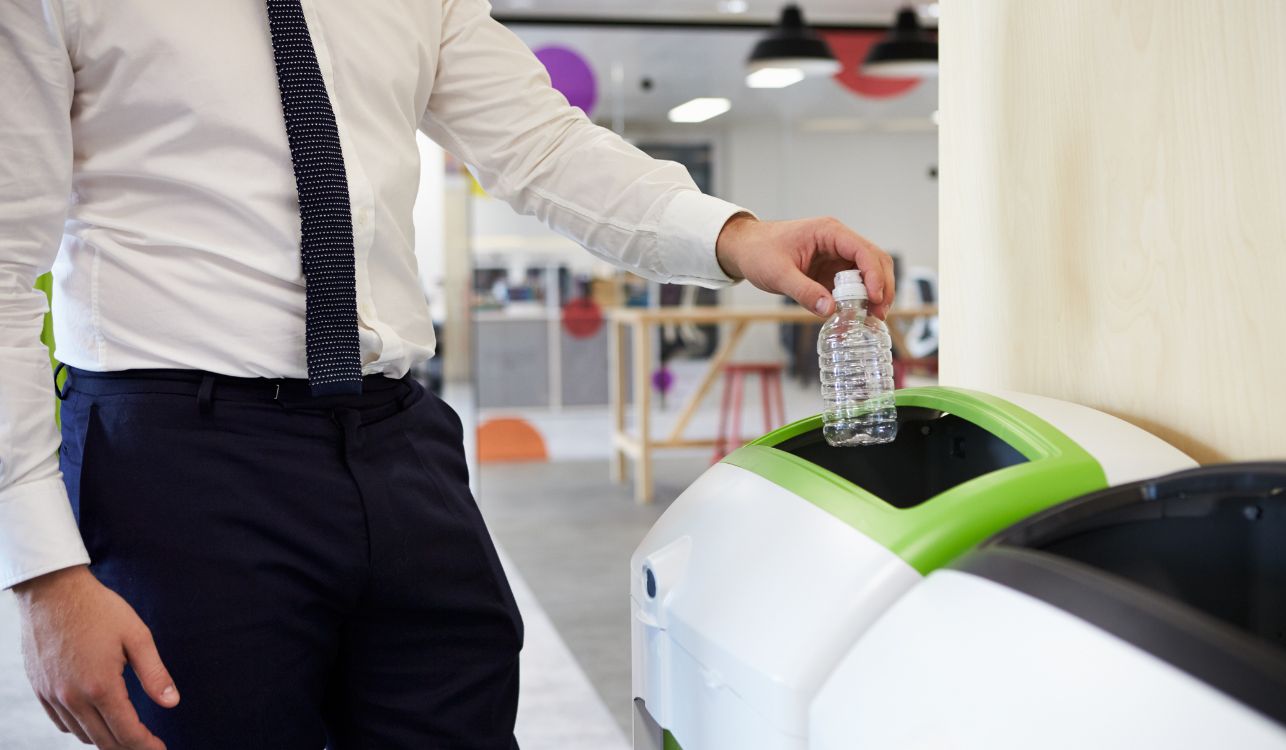 Add My Company
Add My Company
Household vs Business Recycling

There are multiple differences between household and business waste recycling in the UK.
In basic terms, household waste comprises the various types of refuse produced in an average home such as cans, bottles, food packaging, compost, clothing and newspapers.
Business or commercial waste is generated in all sectors including offices, the construction industry, retail, landscape gardening, agriculture, demolition and more.
© Monkey Business Images / Shutterstock.com
Local authorities are required by law to provide waste collection and recycling services and both domestic and business service users must dispose of their waste correctly.
People who dispose of waste illegally, such as fly tipping, or disposing of hazardous substances without following strict guidelines, are breaking the law and can be punished with hefty fines.
What can I recycle?
As a householder, you can recycle many different items. The old days of having a metal dustbin or bin bags into which you could throw just about everything away have long gone.
Instead, the government and local authorities are aiming to improve recycling rates to help save the planet and prevent an increase in landfill sites.
For most of us, this means having two wheelie bins provided through your council tax payment and a third for green waste that often costs an additional small fee.
All the wheelie bins are suitable for kerbside collection. In addition, many councils will provide a bag or a box for wastepaper collection, rather than a bin.
The general waste wheelie bin is for non-recyclable waste only and is often black or grey in colour. Check with your local council which items they accept for recycling.
The blue bin is for recyclable waste such as glass jars and bottles; plastic bottles, trays and tubs; kitchen foil; empty drinks cans and food tins; aerosol cans and foil meal containers.
Various types of plastic items can be recycled including yoghurt pots; margarine tubs; clear plastic packaging; plastic drinks bottles; plant pots except for black ones; shampoo and shower gel bottles; shrink wrap; bubble wrap and plastic bags.
All items should be clean and free from food, as this can create unpleasant odours and attract flies and rats if the food packaging materials are left dirty.
Never put sanitary products such as nappies in the recycling bin, as they can’t be recycled and will cause tonnes of other waste in the same wagon to be contaminated and sent for disposal at landfill sites.
The green bin is for garden waste including grass; weeds; leaves; plants; flowers; windfall fruit; branches and twigs; hay and straw; hedge clippings and pruning waste.
Although household recycling is required by law across the UK, with councils having to manage recycling facilities, the system can vary depending on each local authority.
Normally, the refuse is collected every two weeks, alternating between non-recyclable waste one week and all the recyclable waste the next.
How many UK households recycle?
The recycling rate in the UK is slowly increasing, but more households need to participate. The latest government statistics on waste, released in June 2023, show 44.6% of household waste is recycled per year.
There are different rates in each of the Home Counties, with Wales achieving most domestic recycling at 56.7% and Northern Ireland, England and Scotland recycling 48.4%, 44.1% and 41.7% respectively. England generates a massive 84% of the UK’s 222.2 million tonnes of total waste annually.
While the items listed above can be collected from your home through kerbside collections, some recycling centres will accept other items if you can drop them off. These may include furniture, mobile phones, textiles, paint, oil, print cartridges and wood.
Business waste collection
Any waste generated by commercial activities is classed as business waste, including if you’re working from home, or use even a part of your home to run a business.
Any waste that comes from demolition, construction, agriculture and industry is considered to be commercial waste.
The latest government report, released in June 2023, estimates the UK generates 33.9 million tonnes of industrial and commercial waste per year. Like household waste, 84% of it is generated in England.
Businesses in the UK must dispose of waste responsibly by law or face stiff financial penalties. The government publishes guidelines on its website to help businesses to adhere to the legislation.
Every company must keep waste to a minimum by producing as little rubbish as possible, reusing items, recycling, or recovering waste responsibly. It must be stored safely and securely on site until it is collected.
Businesses have additional responsibilities when creating hazardous waste to keep people and the environment safe - a “duty of care” applies whether you produce, collect and transport waste, or receive it for disposal or recycling.
Every business must fill in a waste transfer note for each load that’s collected from their site if a private contractor is used. Check whether your waste transporter is registered, as it’s illegal for an unregistered individual or company to carry business waste. If a waste carrier disposes of your refuse illegally, you must report them to the police, as they are breaking the law.
Local authorities also run business waste collection and recycling schemes, although the details can vary in different areas.
The services are provided through the business rates that local companies pay to the council in some areas. Check with your council for details of their recycling system to ensure you comply with the policies and procedures.
How many UK businesses recycle?
While householders seem to be doing their best to recycle, unfortunately, research has revealed businesses in the UK are lagging behind.
Despite the increase in publicity about recycling, including debates in the Commons on becoming more eco-friendly, a massive 90% of UK companies don’t have a specific green policy. According to research by waste management agency Business Waste UK, they are “behind the times” when it comes to their impact on the environment.
While many householders are recycling regularly, businesses are “slow to implement changes”, according to the study of 700 companies across Britain. The data revealed 96% of businesses didn’t use recycled paper, 80% didn’t have separate recycling bins and 59% still used plastic cups at drinks machines. Only 6% said they used eco-friendly cleaning products, while 36% used older fridges that weren’t rated AA+.
Learning how to recycle at work is simple: all you need are the appropriate recycling bins placed in strategic places around the workplace to encourage staff to participate.
You could also add some advice near or on the bins on what can and can’t be recycled to encourage compliance.
For more information on Household vs Business Recycling talk to Solent Plastics

